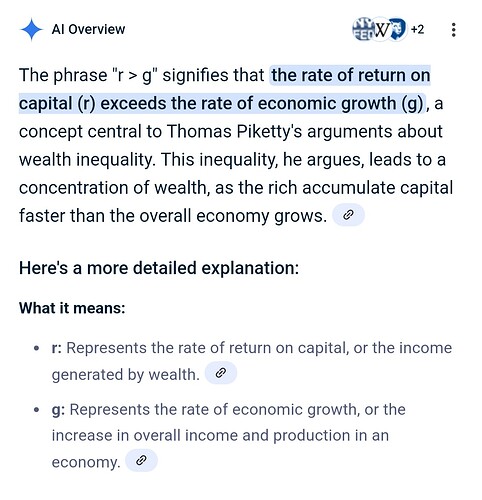It’s the ultra rich versus the rest of the world. And the rest of the world is getting pasted. In the words of Warren Buffet in 2006,
“There’s class warfare, all right, but it’s my class, the rich class, that’s making war, and we’re winning.”
All this faldarol about gender, religion, race, and any other cultural partitioning you can envision is just a smoke screen. Designed so you won’t notice we are being robbed blind. Not so sure? Here is the profile of Trumps Sect of the Treasury, Scott Bessent. https://en.m.wikipedia.org/wiki/Scott_Bessent
Quick tldr…his husband, former [New York City] prosecutor John Freeman, have two children. He is the former head of the London office of Soros Fund Management. But sexual orientation and politics aside, he easily qualifies since his financial disclosure showed a net worth of $525,000,000. That qualifies.
It’s just as you always knew…follow the money. As the wealth inequality gets larger and larger, those that survive on their labor drift into poverty. They have assets; we have leases and mortgages. Used to be a day when folks actually owned their music collection. Now they rent it. Even farmers are fighting tooth and nail to own their tractors, going to court for the privilege of repairing “their won equipment” . The common man owns less and less every year.
While the pandemic was nasty, "The world’s ten richest men more than doubled their fortunes from $700 billion to $1.5 trillion —at a rate of $15,000 per second or $1.3 billion a day— during the first two years of a pandemic that has seen the incomes of 99 percent of humanity fall and over 160 million more people forced into poverty. " Anyone can google the question of how big that increase was, the numbers vary somewhat at different sources. The general drift is all the like.
So ask yourself a simple question. All that govt debt build up due to handouts…where did all that money end up? Where is it now?
The answer is: it was spent by 90%+ of the recipients. It was spent on mortgages, rents, food, gasoline, and power. Guess who owns the producers of all that stuff. There’s your answer.
When Ds harangue about Medicaid, don’t fall for it. Universal healthcare is the correct answer. Sending tax dollars to the ultra rich via “Joe and Jane consumer” is just the conduit. It ends up in the folks that own the assets.
And all this MAGA crap…let’s return to the Golden Era of the 50’s…I can guarantee that will not include the essential foundations of that economy: top marginal tax rates of 90%, huge inheritance tax rates, and free universities.
Back at Scott bessent…here is what he said in an interview .
Could we be seeing that this economy that we inherited starting to roll a bit? Sure. And look, there’s going to be a natural adjustment as we move away from public spending to private spending,” Bessent said on CNBC’s “Squawk Box.”
Translation: we will deregulate (privatize) everything we can. And the common man will funnel more and more money to those that hold the assets.
The ONLY way out is to tax that wealth. Pull that money out (taxation lowers the amount in circulation), and use it to provide for the general welfare. Cuz if this continues, your children, and your grandchildren will be impoverished. It’s inevitable. What ever it is that you want, housing or food, or whatever, the super rich will always out bid you. That’s how the market works. High bidder wins.
